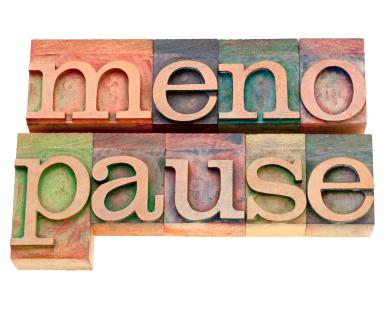Your Guide to Menopause
Menopause is a journey so here are a few ‘signposts’ to help you navigate it.

It can be a very confusing time, so a quick overview of what the transition is could help.
Menopause happens naturally with age. But it can also stem from surgery, treatment of a disease, or an illness. In these cases it can be called induced menopause, surgical menopause, or primary ovarian insufficiency, depending on the cause.
It is the end of the menstrual cycle and fertility and it happens when your periods have stopped for a full year and your ovaries no longer make oestrogen and progesterone.
When does it start?
Menopause starts on average around age 51 when it happens naturally. But it can happen before you turn 40, which is premature menopause. The age at which yours will start is mostly determined by your genes.
What are the symptoms?
When it starts naturally, the first sign should be an irregular menstrual cycle.
You might also notice symptoms such as hot flushes and night sweats. Other common symtpoms that occur during menopause include:
– Mood swings
– Lower sex drive
– Sweating
– Racing heart
– Headaches
– Vaginal dryness and soreness
– Painful sex
– Trouble sleeping
Some symptoms can be short lived, but others can last for years and affect your quality of life.
Once you notice the irregular periods and other symptoms starting it usually lasts anything from 4-14 years.
BUT no guarantees as women are all different and symptoms can go on longer, even post menopause.
What are the 3 stages?
The process happens slowly over the following stages:
1. Perimenopause when your cycles will become irregular, but they haven’t stopped. Most women hit this stage around age 47 but do be aware that even though you might notice symptoms like hot flushes, you can still get pregnant.
2. Menopause is when you’ll have your final menstrual period and you won’t know for sure it’s happened until you’ve gone a year without one.
Hot flushes, vaginal dryness, sleep problems, and other symptoms are common in this stage.
3. Postmenopause begins when you hit the year mark from your final period.
Keep in mind that after more than one year of no menstrual periods due to menopause, vaginal bleeding isn’t normal, so tell your doctor immediately if you have any.
What about testing?
The most accurate way to tell if it’s happening to you is to watch your menstrual cycles for 12 months in a row. It helps to keep track of your periods and chart them as they become irregular.
Your doctor can check your blood for follicle stimulating hormone (FSH). The levels will jump as your ovaries begin to shut down. As your hormone levels fall you’ll notice changes such as hot flushes, vaginal dryness, and less lubrication during sex.
The tissue in and around your vagina will also thin as oestrogen drops. The only way to check for this is through a smear test, but it’s rarely done.
As this happens, you might have urinary incontinence, painful sex, a low sex drive, and vaginal itching.
Treating the symptoms
There are a quite a few ways to help with the changes and symptoms you may experience at menopause.
1. Lifestyle changes are the best place to start as a healthy diet and regular exercise will help manage your symptoms and boost your health.
This is the time to finally kick any old, unhealthy habits like smoking or drinking too much alcohol and start new ones like increasing your fruit and vegetable intake and cutting down on processed foods, sweeteners and sugary snacks.
To help with hot flushes or night sweats dress lightly and in layers that are loose as tight clothing will make it worse, and more obvious.
Avoid triggers like caffeine and spicy foods and don’t forget the impact of stress as that can definitely make flushes worse.
2. Prescription or over the counter medication for vaginal dryness and sleep problems are commonly used at menopause.
Sleep issues are compounded at Menopause because of the disturbance from night sweats, or hot flushes, as well as an increasing need to pee if you also have bladder weakness issues.
Sleeping pills may be helpful, but there are certainly other natural and herbal preparations you might want to try first.
Oestrogen is always needed for vaginal atrophy or dryness and there are natural lubricants you may find helpful too.
Commonly prescribed medications for menopause symptoms such as hot flushes and mood swings can include antidepressants, anti seizure drugs, or blood pressure medications .
3. Alternative options are now widely available and many women prefer to use a natural alternative such as bioidentical hormones which have been effectively helping women worldwide for many years.
Therapies such as Acupuncture, Herbal Medicine, Homoeopathy, Aromatherapy and Relaxation techniques such as Meditation and Yoga can also be beneficial.
Helpful information
In order to get the most effective help for your symptoms it’s useful to keep a diary of exactly what they are and their severity and if they are affected by external factors such as stress.
It is important never to underestimate the effect of stress on hormonal issues so anything you can do to reduce that will certainly be helpful.
Generally speaking menopause symptoms relate to hormone imbalance, so knowing whether you need to supplement with progesterone or oestrogen or both is a good place to start.
This article can help with that.
https://anna.blog.wellsprings-health.com/which-hormone-or-hormones-might-you-need/


















